Models & Framework
All of Seven Stones’ training and coaching programs and services are rooted in cutting edge research that’s combined with decades of practical experience with and observations on how the human brain is wired to process emotions and thoughts, how those emotions and thoughts show up in the body, and how both affect personal achievement and social dynamics.
In our Transformational Coaching program, we generally look at the way a client thinks, behaves and takes actions. We then create a series of coaching interventions that address both shifts in thinking and mood management and alterations in behavior (thinking, feeling and doing), thereby shifting results. There is, however, one crucial element missing from this widely used change model. All mental phenomena and all actions in the world happen in the context of a subject’s physical body.
Generally, we are unaware of how the physical body informs, shapes and alters our thinking, our mental maps, our moods and our actual behavior in the world at large. In contrast, what makes Seven Stones unique is that we employ a somatically informed coaching methodology, working with clients at every level of their being: the physical body, the mental structures, and the spirit.
We are, first and foremost, biological beings who eat, sleep, reproduce, fight, run and freeze all in an effort to survive. Under pressure, any biological organism responds in certain ways. The human organism is no different. For instance, you walk into the board room for a meeting with your executive team and the CEO. Within the first several minutes of the meeting, the CEO fires someone in front of the whole group. Every organism in the room is instantly perturbed: blood pressure changes, heart rate speeds up, hormones are released and the reptilian brain registers this experience as one of imminent danger. The room is so quiet it seems like everyone is frozen in their seats, and from a physiological perspective that would be correct. Any biological organism would either fight, freeze or flee in the face of this kind of danger.
Though not exactly the danger presented by a tiger on the tundra, this scenario is our modern-day equivalent. Most people are likely to take no action (i.e., freeze) rather than confront the CEO or leave the room. What the most recent neuroscience illuminates is that when a human being alerts to danger, they lose their capacity to think creatively and quickly, and to act nimbly and flexibly. When perturbed in this way any organism has its attention focused exclusively on its survival.
Innovation, strategy and reflection all happen in the neocortex of the brain, to which we have limited access when in this kind of agitated state.
Somatic coaching teaches people how to work with the physical body in order to mindfully focus and proactively return to a physiological state in which they once again are capable of effective action, and to condition themselves to operate with ease, grace and efficacy under pressure or perceived conflict. As with any top performing athlete, we offer clients a range of practices that build stamina, presence, focus, empathy and integrity so that mind and body are operating in concert and on command.
Our somatic discourse draws most specifically on the latest neuroscience and quantum physics, on the work of somatic trauma expert Peter Levine and most deeply on the pioneering teaching of Dr. Richard Strozzi-Heckler, who has singlehandedly championed the relevance of the body in coaching practice.
Peak performing athletes and elite military teams know that high performance requires more than a skill set. To deliver breakout performance under intense competitive pressure requires superior mental clarity, focus, problem-solving ability and perspective. Each one of these skills provides a critical competitive advantage and can be the difference between winning and losing. We at Seven Stones offer mindfulness through meditation and other practices as a foundation of our work.
In its original form, mindfulness was a practice offered by the Buddha as meditation that offered people a path from suffering to peace, from misunderstanding and misperception to clear seeing and clear understanding of the nature of the human mind, how we suffer, and a clear path to liberation from our suffering. Articulated fully, it is a path that includes ethical teachings and specific practices for cultivating a wise mind and an open heart, even in the face of violence and oppression.
Having been brought to the west, this teaching of mindful awareness has caught secular attention for its very practical aspects:
- Building one’s capacity to pause before acting
- Building one’s ability to observe oneself
These skills lead to the possibility of responding rather than reacting instead of simply doing what is automatic.
There are many scientific and anecdotal benefits to a regular mindfulness practice:
- We see that we are not our thoughts. The thoughts happen and we can notice which ones we wish to believe and which ones we can let go of
- We can create a gentle loving attitude towards ourselves especially through times of transitions
- We can soften our harsh judgments with self and others and invite a softening of our critical tone; this small opening allows us to see our own and each person’s humanity more clearly
- We develop a calm serenity in the face of unfortunate circumstances, like when “bad things happen to good people” – wallet being stolen, freak car accidents, health crisis etc.
- We find an easier stance with difficult emotions and body sensations, such as grief and pain
- We develop a willingness to be transparent and address conflicts more readily
- New neural pathways get built in the brain that allow us to access a calm and centered presence
Seven Stones wisdom practices include meditation, guided visualization, somatic coaching and movement. These practices dramatically enhance a leader’s ability in each of these key areas. These practices are integrated, as appropriate, into coaching sessions, retreats and our core curriculum.
Ontology, the art and science of being, is derived from the philosophical work of Martin Heidegger, as articulated in his book Being and Time. To address “being” in coaching, we must understand that we are not solid, rigid beings but rather malleable. With increased awareness and skill, we can alter or transform our way of being. In turn, we will generate more effective action and greater levels of integrity.
Human “being” is antecedent to human “doing,” so in order to achieve sustainable action changes, a powerful coaching exchange must address this foundational and existential aspect of a client’s makeup. In ontological coaching, we assert that “being” is the source of all effective “doing” and that leadership evolution requires this level of dialogue and trustful coaching.
Human thought and human emotions are married for life: “One never goes anywhere without the other.” We coach people to be smart about feelings so that they can think clearly, build rapport and trust with their colleagues and develop feeling informed wisdom both at home and at work. We work to clear emotional roadblocks to productivity and to reinforce the feelings foundations for sustained satisfaction and lasting health.
Recent organizational thinking has posited that emotional intelligence and strong interpersonal and intrapersonal skills are a far more reliable predictor of organizational and managerial success then technical expertise. As a cornerstone of our coaching practice, we teach emotional self-awareness, mood management and the capacity to “go to the balcony” and negotiate with one’s own reactivity and defensiveness as a key leadership capacity. Emotional self-awareness and self-management are core competencies in the domain of relationship skills.
The Seven Stones coaching approach was shaped with significant input from leading thinkers in multiple disciplines of psychotherapy and group work. We draw on their expertise in gestalt, psychodrama, family systems work, group dynamics and narrative therapy to inform our discourse.



